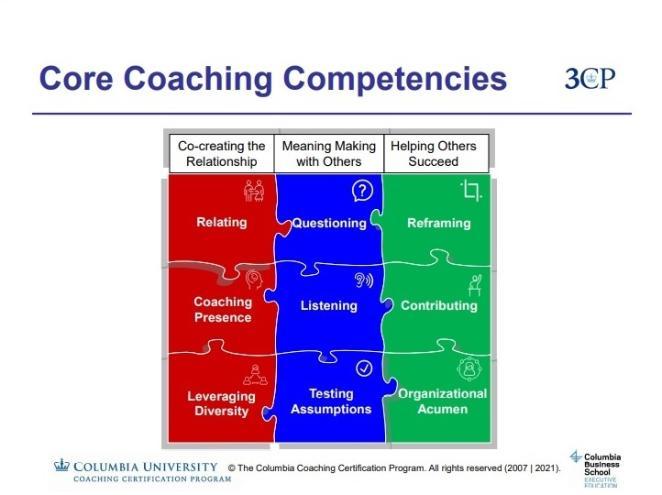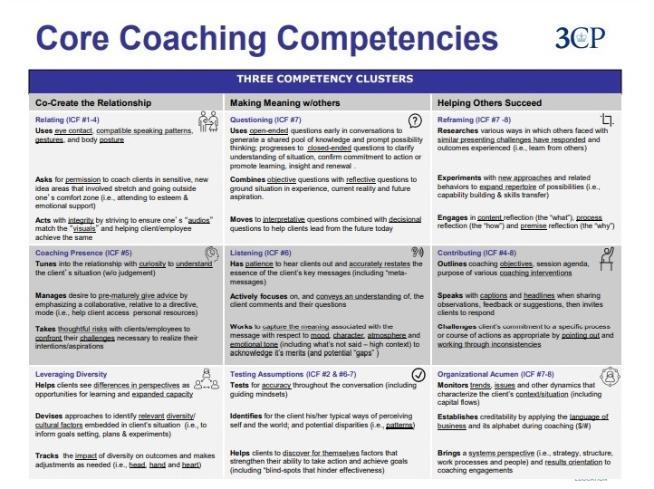Coach Foundations: Core Competencies
Core competencies are aggregates of capabilities that, when applied across the entire coaching process, create synergy and sustainable client value in a broad array of applications (Prahalad & Hamel, 1990). The nine core competencies displayed below bring life to the guiding principles for effectiveness embedded in 3-phased Columbia approach to coaching.
Columbia faculty are engaged in an on-going research project to ground various competency frameworks published by the various professional coaching associations (e.g., ICF, IAC, AC, EMCC, WABC, and so on) to ensure that the program’s foundations are rooted in solid theoretical and empirical, multi-disciplinary research. This research provides a platform for the program’s evidence-based practices.

3CP’s Competency Frameworks is Organized in 3-Competency Clusters, with 3 behavioral examples each.
- Co-creating the Relationship—Effective coaching requires finding the right balance betweenchallenge and support, along with a recognition that coaches must strive to focus on their personal growth, their relationships and helping clients accomplish the objectives of their learning and performance agenda.
- Making Meaning with Others—The three competencies of questioning, listening, and testingassumptions provide a platform for making meaning from experience, identifying critical success factors, and devising plans for taking informed, effective action.
- Helping Others Succeed—Helping clients grow and achieve results through customized, just-in time,discovery, learning and change experiments that move to implementation brings a business focus to the executive and organizational coaching process.
Each 3CP coaching competency has been mapped to 1 or more ICF Core Coaching Competencies, as displayed in the graphic below:
